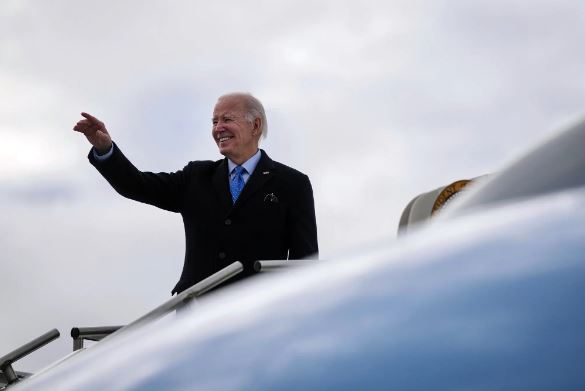This year, with record-breaking temperatures and numerous global challenges, President Biden has decided to forgo attending the annual United Nations climate summit, COP28, in Dubai. A White House official, who spoke on condition of anonymity, revealed that the president’s focus is currently on addressing urgent issues, such as securing the release of hostages held by Hamas in the Israel-Hamas conflict and advocating for congressional approval of aid to Ukraine in its conflict with Russia.
While President Biden signed the groundbreaking Inflation Reduction Act, the largest climate law in American history, and has overseen significant federal investments in clean energy, his climate policies face internal and external pressures. Centrists within his party are concerned about potential Republican attacks on what they perceive as a “radical green agenda,” pushing for acknowledgment of the record crude oil production in the United States this year.
Simultaneously, climate activists, particularly younger voters who played a role in Biden’s election, are urging the president to halt all drilling activities. This internal tug-of-war underscores the challenges the Biden administration faces in balancing environmental concerns with political realities.
Internationally, developing countries are urging President Biden to fulfill promises of providing billions of dollars to aid in climate change mitigation. However, Republican control in Congress has led to skepticism and disagreement over budget allocations, including aid to Israel and Ukraine.
By choosing to skip COP28, President Biden may miss an opportunity to bolster his climate credentials on the global stage. Climate activists, including Michele Weindling from the Sunrise Movement, emphasize the importance of leveraging every available tool to address climate change.
David Victor, co-director of the Deep Decarbonization Initiative at the University of California San Diego, suggests that the president’s decisions are influenced by the need to navigate a delicate balance between appeasing the left wing of his party and positioning himself for potential re-election.
Despite signing new oil leases and permitting projects such as the Willow oil project in Alaska, President Biden’s administration has also accelerated liquid gas exports to Europe, making the United States the world’s largest gas exporter. Gasoline prices at the pump have reached $3.25 a gallon nationwide, reflecting a complex energy landscape.
As more than 100 world leaders gather in Dubai for COP28, including prominent figures like King Charles III, Pope Francis, and President Emmanuel Macron, both President Biden and President Xi Jinping of China will be absent. While President Biden has engaged in climate efforts, his absence raises questions about his commitment to global climate initiatives.
The administration’s decision not to attend COP28 is attributed, in part, to the outbreak of conflict between Israel and Hamas. President Biden’s involvement in addressing this crisis, which included a surprise trip to Israel, diverted attention from potential attendance at the climate summit. Attempts to persuade the president to reconsider his plans were underway but appeared unlikely to succeed.
China, as the largest current emitter of greenhouse gases, will be represented by Ding Xuexiang, a senior aide to President Xi Jinping. The absence of both leaders has been described as a missed opportunity to provide a “moral boost” to the summit.
In Dubai, leaders will discuss progress in limiting global warming to 1.5 degrees Celsius above preindustrial levels. Achieving this target is challenging, given the current 1.2 degrees Celsius global temperature increase. The focus will include debates on phasing out fossil fuels, a pivotal issue in the fight against climate change.
As the world grapples with these critical climate discussions, the absence of two major world leaders underscores the complexity of navigating domestic and international priorities, leaving the future trajectory of global climate action uncertain.

